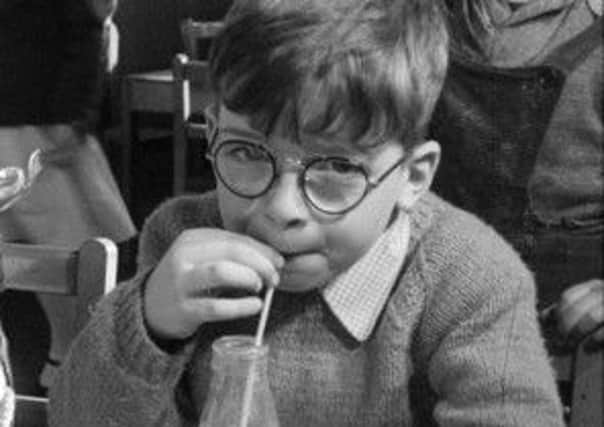Unchanging picture of parents’ problems with tiny tyrants


IN many ways, life today has changed beyond all recognition from the days following the Second World War.
Most of us have computers and mobile phones and enjoy holidays abroad, while we don’t consider things like chocolate and bananas as exotic luxuries.
Advertisement
Hide AdAdvertisement
Hide AdBut when it comes to raising children, a new collection of archive films show that many of our methods have remained the same. Through a series of mainly grainy black-and-white archive films, the Your Children And You collection demonstrates that there are some parenting truths that have stood the test of time.
The collection’s opening film, first broadcast in 1946, begins with a very proper male voice telling viewers: “As soon as you’re a parent, you have troubles you didn’t have before.
“At present it’s all give, give, give by you and take, take, take by him. In many ways, he’s the tyrant and you’re just his slave. This takes hours and hours of your time, completely altering your life, and never a thank you.”
Many modern parents will agree – and should perhaps take note of the film’s subsequent warning: “The slave has got to start right away to teach the young tyrant that family life has sensible rules. If you do let him master you completely, he won’t learn to live properly, and your life won’t be worth living.”
Advertisement
Hide AdAdvertisement
Hide AdChris Cloke. of the NSPCC. says the films, which are part of the Central Office of Information (COI) Collection released by the British Film Institute (BFI), are fascinating.
“In many ways. they were well ahead of their time, with a big focus on positive parenting and advice against smacking. They recognise what a huge life change having a child is for the parents, and the pressure it can have on them – this is something which even today isn’t fully appreciated.”
After warning about the parent slave and baby tyrant, the film goes on to discuss weaning, and then eating meals as a toddler. “She must be hungry, but as usual, she won’t eat her dinner. The first course of every meal is one long scene of coaxing, pleading, wheedling.”
This, says the narrator, is because she’s old enough to sense that food refusal gets her mother upset, which gives her a feeling of self-importance.
Advertisement
Hide AdAdvertisement
Hide AdThe film goes on to show Roger and Anthony, who illustrate the need for all young children to have “a good deal of vigorous play.”
Anthony plays out in the film and gets muddy but “he feels free and perfectly happy”, while inside, poor Roger is clean but “shut in, so resentful and mischievous.”
“The focus on encouraging children to grow and explore without too much restriction, with plenty of outdoor learning and the chance to be messy, is great advice,” says Cloke.
Perhaps surprisingly given the era, smacking is not advocated - instead, when a child is “seriously naughty.”
Advertisement
Hide AdAdvertisement
Hide AdThe best punishment is to send him to his room, it says, and to make him stay there until his behaviour improves.
“Smacking won’t stop him. It never does. Don’t imagine smacking is going to produce better behaviour. “Naughtiness is almost always due to boredom or lack of routine. This is your fault, not the child’s.”
It’s all sound advice that’s still very relevant today. “While some of the advice is a little out of date for the 21st century, much of it is as good today as it was then, and considering the smacking debate still rages now, to have firm advice against smacking all these years ago has to be commended,” says Cloke.
But not surprisingly some comments are dated, such as: “When father lights his pipe, this is the time for the children to have a sweet.”
Advertisement
Hide AdAdvertisement
Hide AdThere are 15 films in the two-disc set, including Bathing And Dressing (1935), Childbirth As An Athletic Feat (1939), Children’s Thought And Language (1971), and Children Growing Up With Other People, a 1947 film which includes observations on adolescence.
Patrick Russell, senior non-fiction curator at the BFI National Archive, points out that an entire sector of the post-war British film industry was devoted to making short films like those in the collection, and says they’re a good gauge of official thinking about childcare and parenthood in the 1940s.
“In many respects, things have changed – but many viewers will be surprised that the attitudes expressed in the films aren’t as dated as might be expected,” he says.
Your Children And You is released on DVD by the British Film Institute on April 15, priced £19.99.